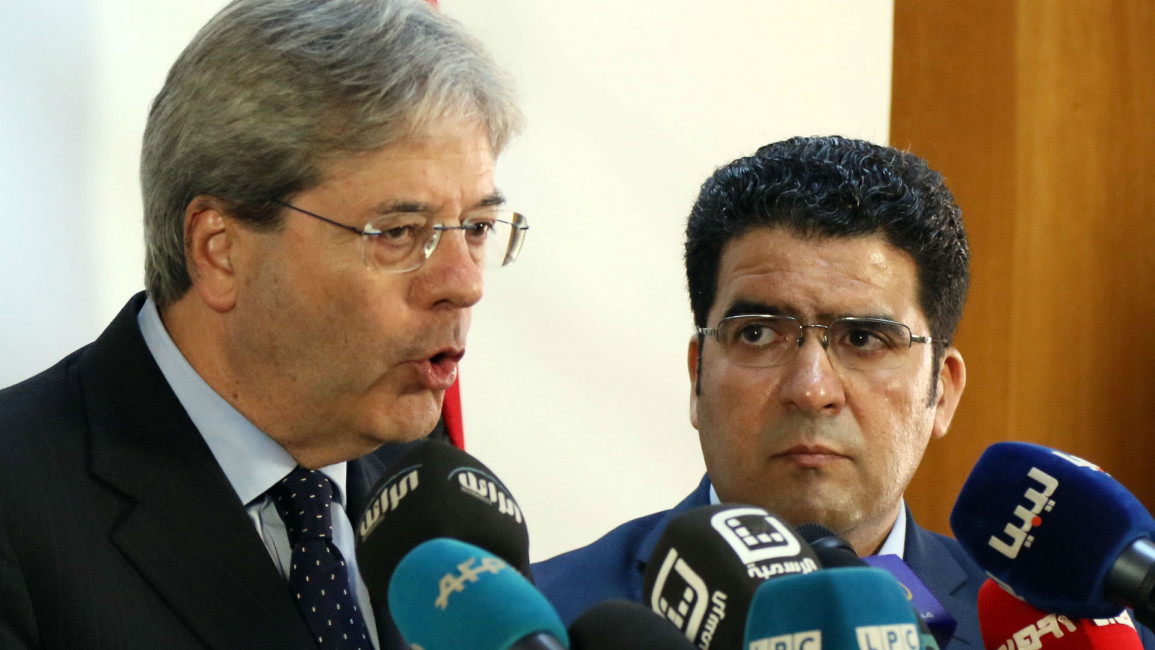Italy foreign minister visits Libya in 'show of confidence'
Paolo Gentiloni was received by the head of the unity government, Fayez Serraj, whose Western backers expect to both unite the conflict-ridden nation and battle the Islamic State group's local franchise.
The visit is seen as a vote of confidence in Serraj, who arrived in Tripoli via sea last month to head the government.
Serraj was prevented from landing at the airport by a rival government backed by Islamists - the government resigned a week later.
A third rival government is based in Libya's far east.
Mohammad Shoaib, first vice-president of the Libyan parliament that convenes in the east, told The Associated Press on Tuesday that the assembly was expected to meet on April 18 to decide whether to endorse Serraj's government.
The unity government would be able to convene in Tripoli once it has the parliament's endorsement.
Earlier attempts by Serraj to form a government were rejected.
| What's been going on in Libya? | |
|
The General National Congress was the Islamist-led elected body ruling Libya for two years following Gaddafi's ousting and death. After its 18-month deadline to form a new constitution passed in January 2014, the body resolved to extend its mandate. |
The United States and European countries, including Italy - which colonised Libya a century ago - anticipate the unity government may gather the fragmented pieces of Libya's factions, after months of UN-brokered negotiations to form the administration.
Last week, the head of US forces in Africa warned the number of IS fighters in Libya had doubled to as many as 6,000 in as little as a year.
IS has exploited the turmoil in Libya since the overthrow of dictator Muammar Gaddafi five years ago, raising fears that it is establishing a new stronghold on Europe's doorstep.
Last year IS militants seized control of Gaddafi's coastal hometown of Sirte and has been fighting to expand to other areas.
US General David Rodriguez said that Libyan militias "are contesting the growth of [IS] in several areas across Libya".
"In the east, in Benghazi and Derna, they have fought back against the Islamic State and made it much tougher for them to operate."
Libya slid into chaos after the 2011 uprising that toppled and killed Muammar Gaddafi, with an array of militias, including extremist groups, carving out fiefdoms across the oil-rich country and backing rival authorities.



